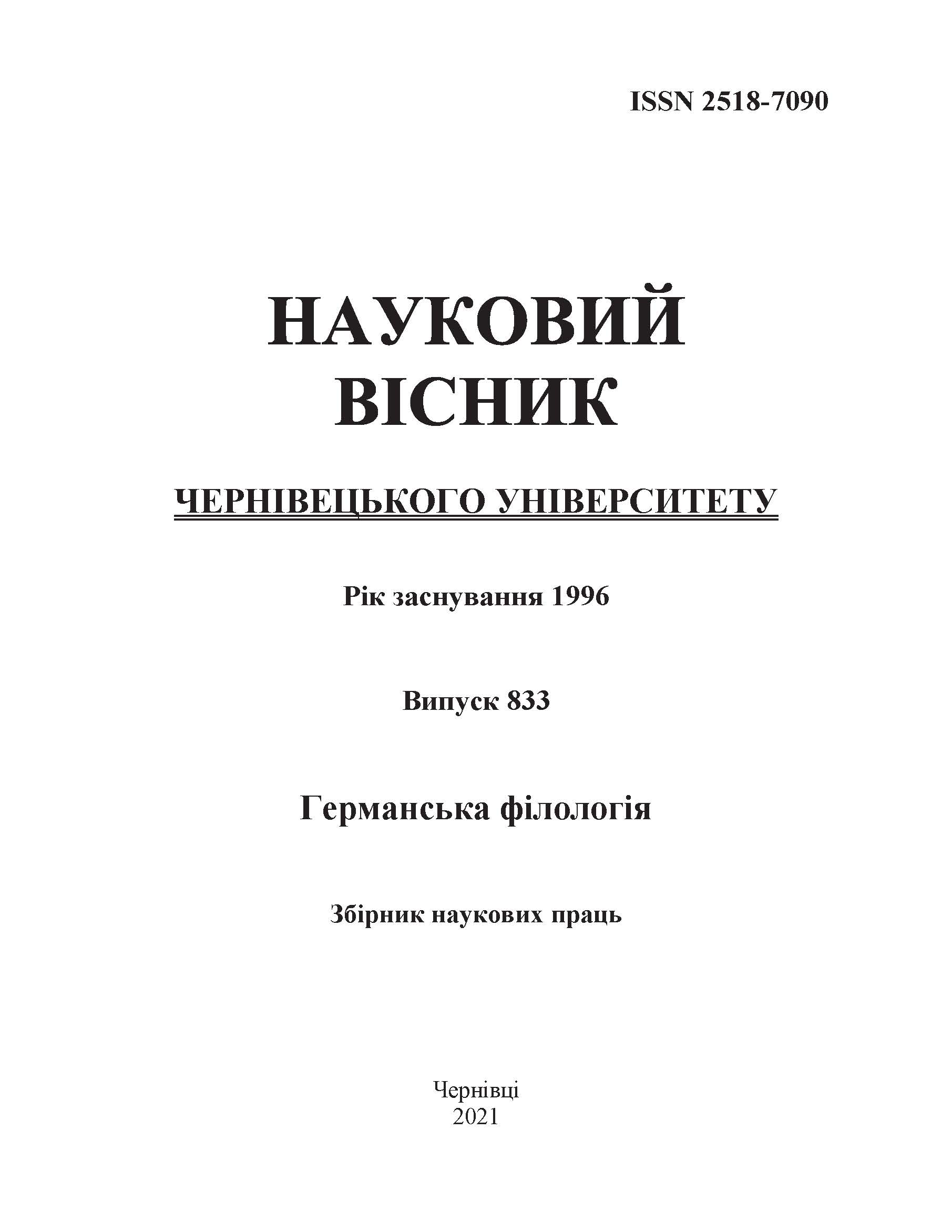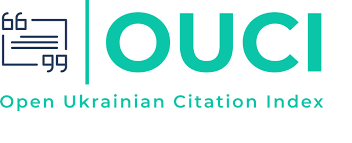ОСОБЛИВОСТІ ПЕРЕКЛАДУ ТЕКСТІВ НІМЕЦЬКМОВНОГО ОФІЦІЙНО-ДІЛОВОГО ДИСКУРСУ
DOI:
https://doi.org/10.31861/gph2021.833.31-38Ключові слова:
офіційно-діловий дискурс, німецько-українські міжнародні угоди, фаховий переклад, перекладацькі стратегіїАнотація
Мета статті полягала у встановленні особливостей перекладу текстів німецькомовного офіційно-ділового дискурсу. Об’єктом дослідження обрані міжнародні угоди між Україною і Німеччиною (німецькою та українською мовами), а предметом – особливості їх перекладу. Для аналізу обрано документи міждержавного характеру з договірно-правової бази відносин між Федеративною Республікою Німеччина і Україною, котрі розміщені на сайтах Посольства України у ФРН (Botschaft der Ukraine in der Bundesrepublik Deutschland) та Посольства Федеративної Республіки Німеччина в Києві (Botschaft der Bundesrepublik Deutschland Kiew). У дослідженні застосовано загальнонаукові методи (індукції та дедукції, аналізу та синтезу), методи лінгвістичного аналізу, як-от комунікативно-прагматичний та інтерпретаційний аналіз тексту, а також контрастивно-перекладацький аналіз, що вважається основним методом зіставлення тексту оригіналу та тексту перекладу. У статті описано лексико-граматичні та стилістичні особливості текстів міжнародних угод із урахуванням специфіки офіційно-ділового стилю в німецькій та українській мовних картинах світу. Тексти аналізованих угод є сферою концентрації національно маркованої лексики і особливостей суспільно-політичного стану країни. Рівень перекладу офіційних угод передбачає збереження в максимальному ступені стилістичних особливостей тексту оригіналу. У ході дослідження було встановлено, що сучасні тенденції перекладу текстів офіційно-ділового дискурсу, зокрема міжнародних угод, демонструють, що типологічні особливості німецької та української мов накладають обмеження на використання таких перекладацьких трансформацій, як калькування, віддаючи перевагу лексико-семантичним трансформаціям (конкретизація) і граматичним замінам (заміна граматичної категорії, заміна граматичної форми, синтаксичні трансформації структури речення). При цьому для передачі безеквівалентної лексики все більше спостерігається тенденція до використання усталених для практики перекладу та міжнародної комунікації номінацій в рамках еквівалентного перекладу, транслітерації, в меншій мірі – транскрипції. В рамках текстових одиниць частіше очевидні комплексні трансформації при перекладі на українську мову.






